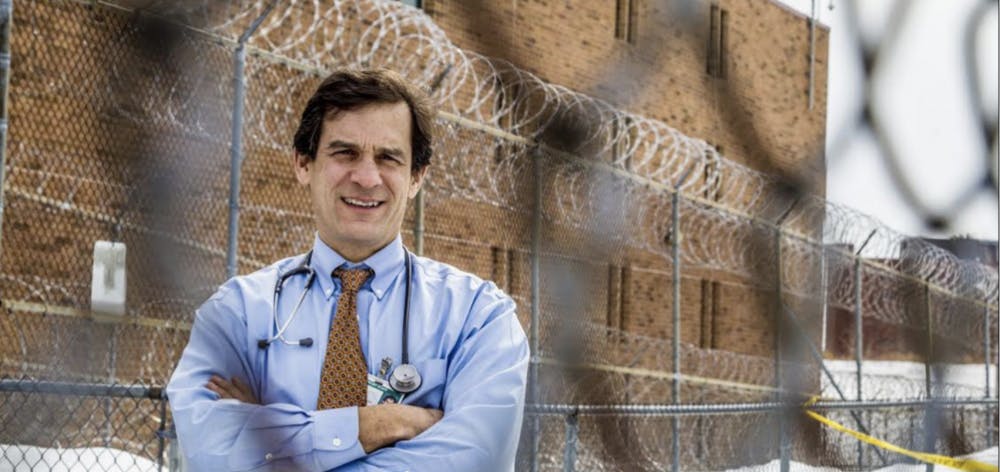A report released Oct. 19 provided recommendations for managing the COVID-19 pandemic in prisons and jails, which have become hotspots for the spread of COVID-19.
The report, titled “Decarcerating Correctional Facilities During COVID-19: Advancing Health, Equity and Safety,” was put together by a panel of criminal justice and public health experts assembled by the National Academies of Sciences, Engineering and Medicine and which included University.
Correctional facilities “have posed a threat to public safety. Good health and safety in the pandemic era will require reducing incarceration and supporting the communities whose incarceration rates are the highest,” Jody Rich, professor of medicine and epidemiology, told The Herald.
“The same strategies you use on the inside, you use on the outside,” Rich said. Correctional facilities need to be testing individuals, keeping them separated, ensuring air circulation and performing contact tracing.
But “the problem in correctional facilities is that there isn’t six feet in between everybody” to ensure adequate social distancing, Rich said. People in the facilities “breathe the same air, eat at the same cafeteria, use the same toilets, use the same recreation areas and sometimes sleep in the same areas.”
Eloho Akpovi MD ’21, a member of the student group Against Racism in Medicine, cited similar challenges. “The people who are hit hardest with COVID are those who are unable to quarantine appropriately and appropriately social distance, and that includes those who are incarcerated and living in close quarters,” she said.
In Rhode Island, there have been 10 reported COVID-19 cases for every 100 people, according to the New York Times. But the rate in state prisons is currently more than five times that, with 66 cases per 100 incarcerated people as of Jan. 21, according to the Rhode Island Department of Corrections’ Facebook page.
RIDOC has also faced calls from state public defenders and the Decarcerate Now Coalition to immediately reduce the number of people behind bars, The Herald previously reported.
To reduce the incarcerated population, the report recommends that law enforcement issue citations in lieu of arrests. “We shouldn’t be locking people up because they can’t pay fines or bail,” Rich said. “It is not worth the cost to society to have this spread.”
The report also calls for correctional officials to identify candidates for release. “Individuals assessed as medically vulnerable, nearing sentence completion or of low risk to commit serious crime (may be) likely candidates,” according to the report.
Proposed strategies for safe decarceration include identifying resources for housing, facilitating health care access and removing barriers to Medicaid eligibility and access.
While Assistant Professor of Obstetrics and Gynecology E. Christine Brousseau agrees with the report’s recommendations, she added that the “facilities seem to operate very independently, making any universal adoption of these recommendations unlikely.”
Beyond decarceration, individuals who are incarcerated must also be properly reintegrated into society, Akpovi said. Other important needs include finding housing, finding jobs and getting up to date on public health strategies.
“Our society isn’t built to support people after release,” Akpovi said. “Most people, when they leave prison, do not have income. They might not have access to get a mask, let alone housing.”
“It’s not just about releasing them into the public; it’s really about building infrastructure to integrate them back into society and support them during this time,” she added.
The COVID-19 pandemic also negatively impacts individuals’ mental health inside and outside of correctional facilities. “Solitary confinement is very detrimental to people's mental health and physical health,” Akpovi said, adding that correctional officials need to rethink how to “do quarantining in the prison system without further exacerbating whatever mental health issues that are oftentimes comorbid” amongst those who are incarcerated.
“A comprehensive report like this, with consensus of experts,” Brousseau said, “is an important voice for incarcerated persons who may not otherwise be heard.”

ADVERTISEMENT
More




